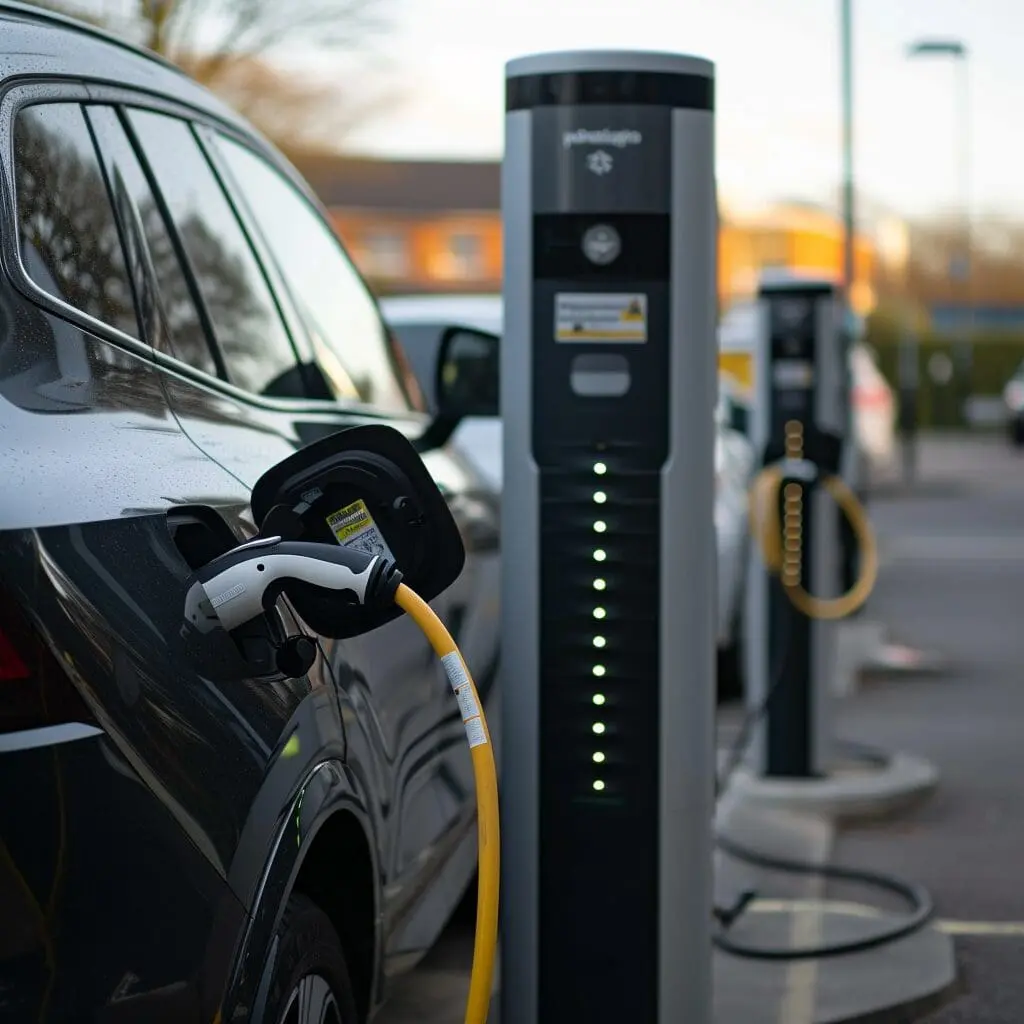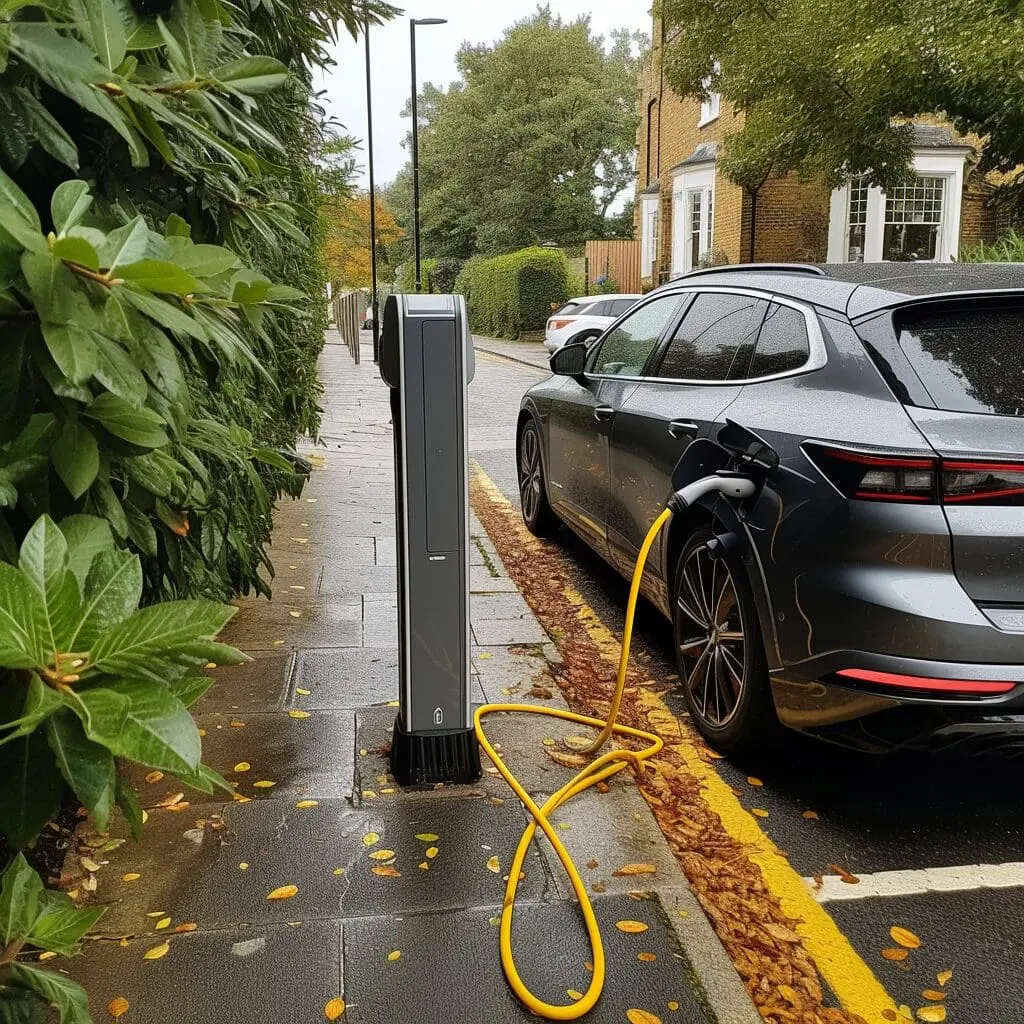

With a focus on innovation and sustainability, BT Group is leading the way in green technological transformations by repurposing its green street cabinets into electric vehicle (EV) charging stations. This ingenious initiative not only revitalizes infrastructure at risk of obsolescence but also directly contributes to the UK’s ambitious environmental targets. Working in collaboration with local authorities, BT Group is set to install an impressive 60,000 public charging points across the country, strengthening the EV market and addressing the issue of charging availability. This commitment to environmental stewardship and a cleaner, more sustainable future is exemplified by BT Group’s dedication to developing charging infrastructure in partnership with local authorities.
In an era where sustainable solutions are imperative, the transformation of BT’s disused green street cabinets into EV charging points represents an ingenious stride towards solving the electric vehicle (EV) charging conundrum. This initiative not only capitalises on existing infrastructures that might otherwise go to waste but also paves the way for other companies to follow. By converting these widely dispersed units, we are effectively embedding EV charging infrastructure into the fabric of communities, dramatically increasing the convenience and feasibility of owning and operating electric cars. This out-of-the-box thinking demonstrates how companies can repurpose their assets in eco-friendly ways while participating in the UK’s ambitious journey towards a greener motoring landscape. Charge point operators play a vital role in establishing and maintaining these charge points, further expanding the network and accessibility for electric vehicle owners.
Quite Good’s commitment to environmental sustainability extends to fostering a collaborative relationship with UK businesses, encouraging the adoption of green technologies. As we lead by example with the repurposing of old BT green street cabinets into contemporary EV charging points, including off-street parking and public chargers in retail car parks, we demonstrate that sustainable solutions can be seamlessly integrated into daily business operations. This initiative not only helps to reduce resource wastage but also propels the electric vehicle market forward. By endorsing such innovative practices, Quite Good offers a blueprint for businesses to contribute effectively to the UK’s green revolution, paving the way for a more sustainable and technologically advanced society.
Beyond the clever conversion of old BT green street cabinets, the exploration of kerbside infrastructure presents a wealth of opportunity for increasing accessibility to EV charging points. Incorporating on-street chargers into existing urban features, such as lamp posts and parking meters, offers a dual benefit: it makes use of structures already wired for electricity and puts charging devices where people naturally park. Even more creative solutions like adapting retired telephone boxes or repurposing public toilets into charging stations reflect a holistic approach to urban design—turning everyday street furniture into pillars of sustainable practice. Such inventive use of space could significantly alleviate the current shortage of charging points, with a combination of slow charge, ultra rapid chargers, and on-street chargers, and is a testament to the forward-thinking strategies driving the nation towards a more eco-conscious future.
Quite Good invites community members to actively participate in the green transformation spearheaded by the innovative use of BT’s green street cabinets as electric vehicle (EV) charging points. By volunteering your time, you can assist in local outreach, education, and the physical installation of these sustainable infrastructures, contributing to the roll out of faster charging speeds. For those who prefer financial support, donations are crucial for funding the expansion of this project, further research into sustainable technologies, and the adaptation of additional repurposed infrastructures for green purposes. Engaging with Quite Good not only contributes to achieving a significant milestone in the UK’s EV charging network but also fosters a sense of community around the shared goal of environmental conservation and green living.
Quite Good, a charge point operator with an eco-conscious ethos, is making waves in conserving water and protecting wildlife. The company recognises that the journey towards sustainability is multifaceted. Beyond enhancing the nation’s electric vehicle infrastructure, there is a need to protect our natural ecosystems. By optimising the use of existing urban structures like BT’s green street cabinets for slow chargers, Quite Good is minimising the environmental disruption that new constructions often cause. This strategy preserves local water resources and safeguards natural habitats from being compromised, demonstrating that progress in green technology can go hand in hand with the conservation of our planet’s vital resources and the diverse species that depend on them. It’s a step towards a greener world.
Quite Good is at the forefront of catalysing clean energy solutions, actively inviting the public to join a movement that pioneers the growth of public charging infrastructure for electric vehicles (EVs). Through the innovative conversion of BT’s hallmark green street cabinets, we integrate these charging points into the everyday landscape. This not only supports the rising demand for EVs but also encourages broader awareness and adoption of clean energy practices. Our movement goes beyond installing hardware; it fosters a collective consciousness geared towards environmental sustainability. As we move forward, the adoption of these eco-friendly stations by communities will mark a significant step in the UK’s transition to a greener, more resilient future. This is championed by forward-thinking initiatives and supported by both the government and individuals and businesses alike.
The BT Group’s innovative pilot scheme in Scotland signifies a progressive step towards achieving the ambitious target of 300,000 public chargepoints across the UK by 2030. This ground-breaking programme seeks to transform a selection of the iconic green BT street cabinets into fully functional electric vehicle charging stations, powering the nation’s transition to sustainable transportation. By repurposing these familiar urban fixtures, the scheme not only puts Scotland at the forefront of eco-innovation but also establishes a model for low-impact infrastructure development nationwide. The strategy aligns with national goals by mitigating the expansion of the carbon footprint, utilising existing resources to maximum effect, and significantly improving the availability of EV charging solutions in local communities.
Quite Good’s initiative to repurpose green BT street cabinets into electric vehicle (EV) charging infrastructure is a transformative approach to reducing environmental impact and enhancing accessibility to EV charge points. By innovatively using familiar street-side infrastructure, the company not only provides convenient charging options for EV owners but also addresses the concern of ‘charging deserts’ in urban spaces. This forward-thinking project reduces the need for resource-intensive construction and promotes the use of clean energy, making the transition to electric vehicles a viable option for a broader segment of society. As Quite Good continues to push the boundaries of sustainable technology, it exemplifies how strategic thinking and community involvement can foster impactful environmental change and lead the charge towards a more sustainable future for transportation.

This website uses cookies to improve your experience. Choose what you're happy with.
Required for the site to function and can't be switched off.
Help us improve the website. Turn on if you agree.
Used for ads and personalisation. Turn on if you agree.
This website uses cookies to improve your experience. Choose what you're happy with.
Required for the site to function and can't be switched off.
Help us improve the website. Turn on if you agree.
Used for ads and personalisation. Turn on if you agree.